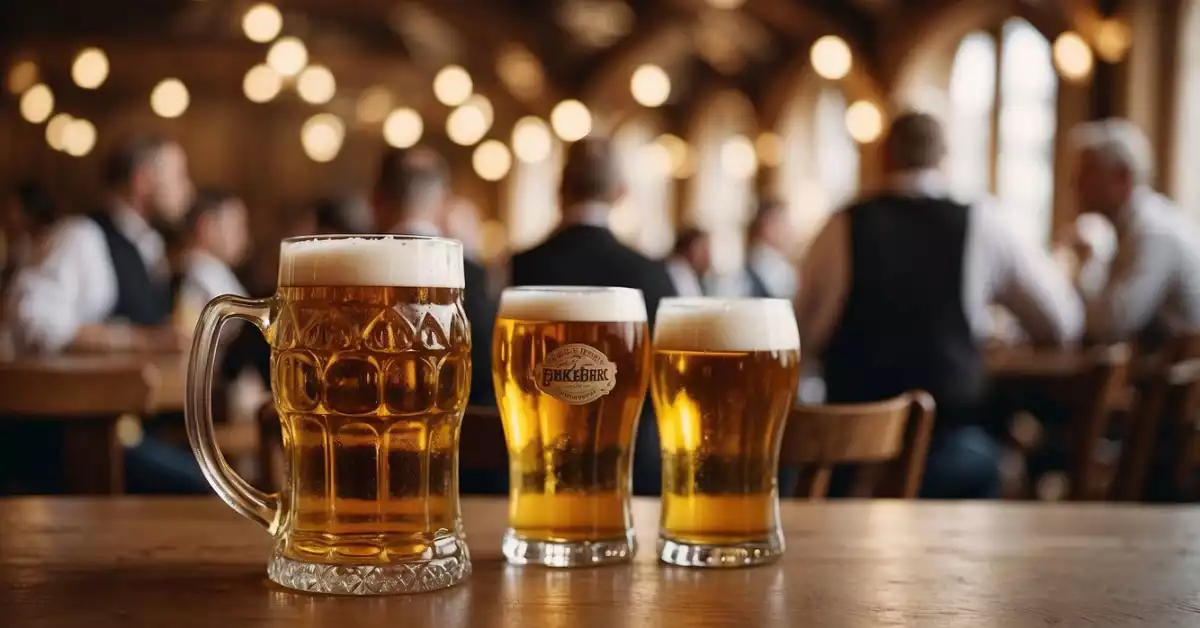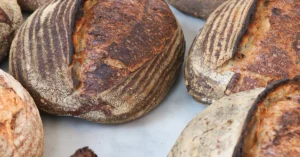Alright, it’s the moment to delve into this feature on Bavarian Beer. Beer is undeniably one of the primary things that springs to mind at the mention of Germany. This piece zeroes in on Bavarian beer in particular. Enjoying a substantial Maas of beer transcends just the renowned Oktoberfest. It’s time to embark on a journey through the history and rich tastes of Bavarian beer. Off we go.
History of Bavarian Beer
Bavarian beer boasts a storied past, deeply rooted in tradition and quality. You’ll uncover its genesis in medieval times and learn how the Reinheitsgebot, the famous beer purity law, still impacts Bavarian brewing today.
Origins in the Middle Ages
In the Middle Ages, Bavarian beer began its journey. Bavaria, a region synonymous with beer, saw its numerous monasteries becoming the epicenters of brewing excellence. The Bayerische Staatsbrauerei Weihenstephan in Freising is often cited as the world’s oldest existing brewery, with a history that stretches back to 1040.
| Date | Event |
|---|---|
| 8th Century | Monasteries start brewing beer |
| 1040 | Weihenstephan Abbey founded |
Here, the monks not only practiced their faith but also perfected their beers, thereby solidifying a brewing tradition that would echo through the ages.
Reinheitsgebot: The Bavarian Purity Law

The Reinheitsgebot, known in English as the Beer Purity Law, was a significant milestone in the history of Bavarian beer. Codified in 1516 by the Bavarian duke Wilhelm IV, it mandated that all beer in Bavaria must be brewed using only barley, hops, and clean water.
| Ingredient | Use |
|---|---|
| Barley | The only grain allowed for brewing |
| Hops | Provide flavor and preservative qualities |
| Water | Must be clean |
This insistence on purity ensured a consistent quality of beer and is a testament to Bavaria’s dedication to brewing excellence. The Reinheitsgebot is still in effect to this day, reflecting a reverence for tradition in Bavarian brewing.
Bavarian Brewing Techniques
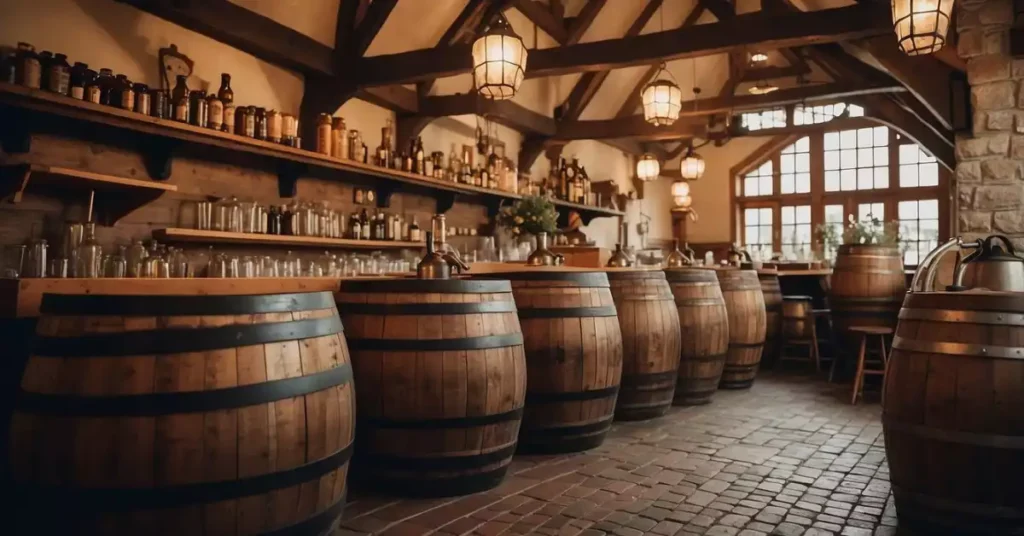
Bavarian brewing is steeped in a rich tradition that enhances the quality and flavor of its beer. You’ll discover that each step, from water quality to fermentation, is carried out with precision and care.
Water Quality and its Role
Water is the foundation of any beer, and Bavarian brewers pay special attention to its quality. The composition of minerals in the water can significantly affect the taste of the beer. Traditional Bavarian brewing methods utilize the naturally soft water from local sources, which is ideal for making a variety of beer styles, especially the renowned Munich lagers.
| Water Characteristics | Ideal for Brewing | Common Beer Style |
|---|---|---|
| Soft Water | Yes | Munich Lagers |
| Mineral-rich Water | No | — |
| Hard Water | No | — |
Fermentation Processes

Bavarian beer brewing is known for two primary types of fermentation methods: top-fermentation and bottom-fermentation. Top-fermented beers, such as Weissbier, are brewed at warmer temperatures, where yeast rises to the surface during fermentation. This method imparts a distinct fruitiness and clove-like flavors to the beer. On the other hand, bottom-fermented beers like lagers ferment at cooler temperatures with yeast settling at the bottom of the fermenter, resulting in a clean, crisp taste.
- Top-Fermentation:
- Utilized for Weissbier and other ales
- Warm fermentation temperatures
- Yeast rises to the surface
- Bottom-Fermentation:
- Common in Bavarian lagers
- Cool fermentation temperatures
- Yeast settles at the bottom
Bavarian brewers adhere to the Reinheitsgebot, or the Purity Law, which historically limited the ingredients in beer to water, barley, and hops, with yeast later acknowledged as a fundamental component. This law highlights the importance of using natural ingredients and contributes to the distinctive quality and taste of Bavarian beers. Traditional methods, combined with the Purity Law, ensure that when you sip a Bavarian beer, you’re experiencing centuries of perfected brewing techniques.
Bavarian Beer Styles
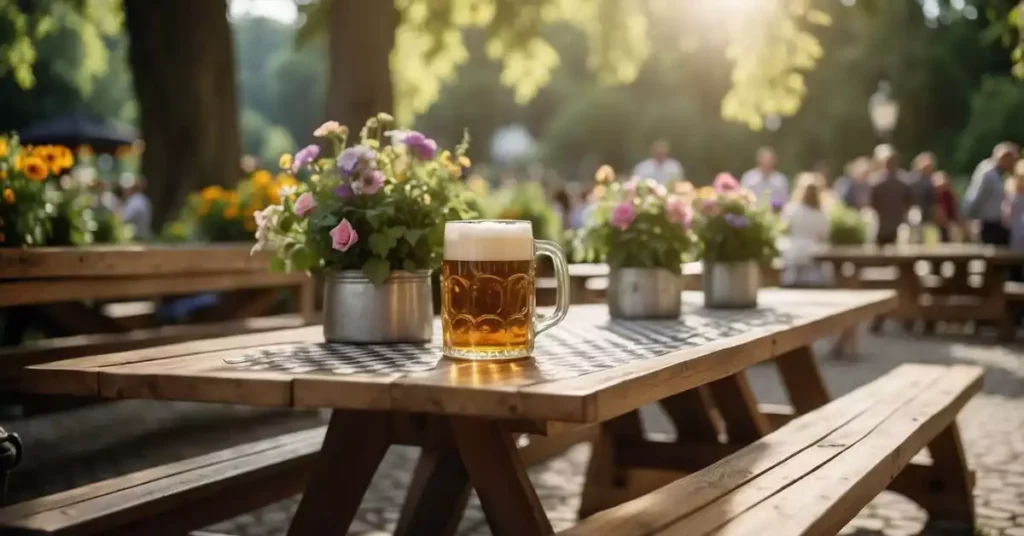
Bavarian beer styles offer a rich tapestry of flavors that cater to every palate, with centuries-old traditions defining their unique characteristics.
Lagers and Ales
In Bavaria, lagers and ales represent two distinct families of beer, each with its fermentation process and flavor profile. Lagers are bottom-fermented at colder temperatures, resulting in a crisp and clean taste. Ales, on the other hand, are top-fermented at warmer temperatures, which typically yields a more robust and fruity flavor spectrum.
- Lagers: Bottom-fermented, cold, crisp.
- Ales: Top-fermented, warm, fruitier notes.
Dunkel and Helles
Dunkel and Helles denote the dark and light hues of Bavarian beers. Dunkel is a smooth, malty dark lager with caramel notes, while Helles is a brighter and more approachable pale lager with a mild hop presence.
- Dunkel: Dark, malty, caramel.
- Helles: Pale, mild hop flavor.
Specialty Beers: Weissbier, Bock, and More

Bavaria’s vast array of specialty beers like Weissbier, Bock, and their stronger cousin Doppelbock impress with their diverse flavors. Unique offerings include Eisbock, a higher alcohol beer with a stronger body, and Rauchbier, a beer with a distinctive smoky flavor.
Weissbier, also known as Weizenbier, is a top-fermented beer made with a significant proportion of wheat. Its varieties like Kristallweizen are filtered for clarity. The Bockbier category stands out with its rich, potent, and malty characteristics, which peak in the Doppelbock style, known for its intense flavor and higher alcohol content.
Specialty Bavarian Beer Styles Table
| Style | Main Characteristics | Typical Alcohol By Volume (ABV) |
|---|---|---|
| Weissbier | Wheat, fruity, spicy | 4.3 – 5.6% |
| Kristallweizen | Clear, refreshing, less yeast | 4.3 – 5.6% |
| Rauchbier | Smoky, robust | 4.5 – 6.0% |
| Bockbier | Strong, malty | 6.0 – 7.5% |
| Doppelbock | Rich, intense flavors, high alcohol | 7.0 – 12.0% |
| Eisbock | Full-bodied, higher alcohol content | 9.0 – 15.0% |
Iconic Bavarian Breweries
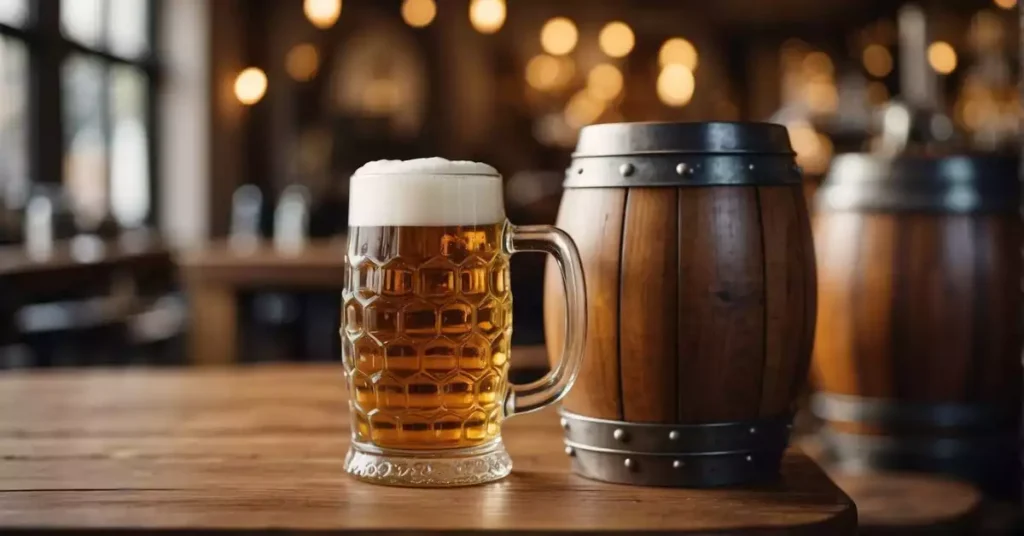
Bavaria is home to some of the oldest and most esteemed breweries in the world. As you explore these historic institutions, you’ll discover a rich tapestry of beer culture that’s been perfected over centuries.
Bayerische Staatsbrauerei Weihenstephan
The Bayerische Staatsbrauerei Weihenstephan claims the title of the world’s oldest continually operating brewery. With origins dating back to the year 1040, the brewery stands atop the Weihenstephan Hill in Freising, just north of Munich. Over the centuries, it has become a benchmark for quality German beer, renowned for its crisp and flavorful wheat beers that are enjoyed far beyond Bavaria’s borders.
Historic Breweries of Munich and Franconia
Munich and Franconia are regions synonymous with beer, each hosting breweries steeped in tradition. Munich is famous for its large beer houses, including the likes of Augustiner-Bräu, Löwenbräu, Paulaner, and Spaten. Each of these breweries contributes to Munich’s reputation for producing diverse and world-renowned beer styles.
In Franconia, particularly around Nuremberg, you can taste historic flavors at breweries like Schneider Weisse, known for its exceptional wheat beers. The region’s brewing tradition is marked by a deep respect for craftsmanship, sustaining numerous small breweries that create a stunning variety of beers.
Munich’s Iconic Breweries – Quick Overview
| Brewery | Foundation Year | Known For |
|---|---|---|
| Augustiner-Bräu | 1328 | Munich’s oldest independent brewery |
| Löwenbräu | 1383 | Rich history and strong lagers |
| Paulaner | 1634 | Popular wheat beers and festive Oktoberfest beer |
| Spaten | 1397 | Innovations in lager brewing; Oktoberfest traditions |
Franconia’s deep-rooted beer culture and Munich’s legendary beer halls epitomize Bavarian brewing excellence, making the experience of visiting these breweries both educational and thoroughly enjoyable.
Beer and Bavarian Culture
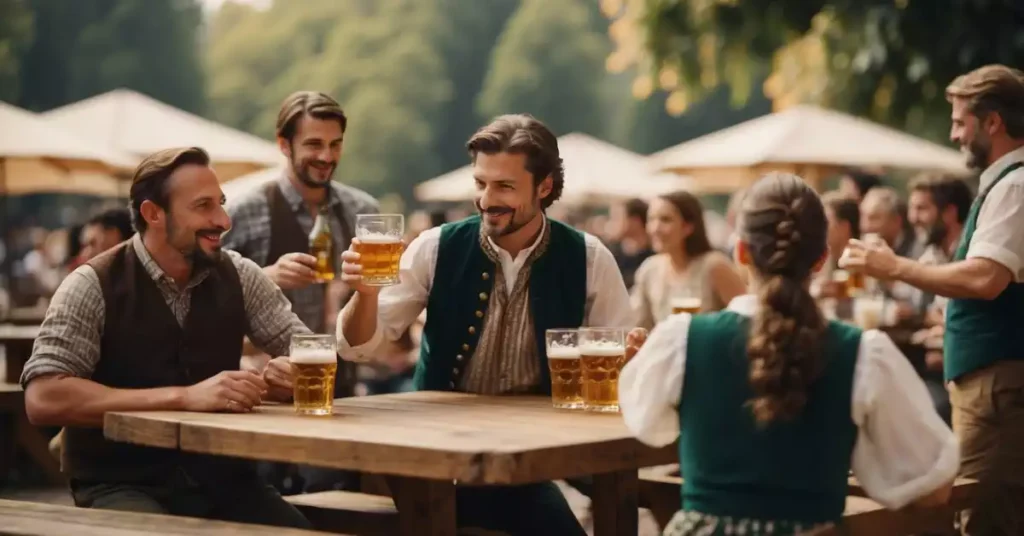
In Bavaria, beer isn’t just a drink; it’s a way of life. As you stroll through this picturesque region in Southern Germany, you’ll quickly notice the revered status beer holds in Bavarian tradition.
- The heart of Bavarian social life can be found in its beer gardens and Biergartens. These are not just places to drink; they are spaces where families and friends gather, where festive music fills the air, and where life slows down. On your visit, the inviting atmosphere of a beer garden will make you feel right at home, savoring your beer under the shade of chestnut trees.
Food Pairing
In any Bavarian beer garden, you’ll find more than just beer; there’s an array of traditional food to complement your drink. The menus often feature:
| Dish | Description |
|---|---|
| Pretzels | A salty and hearty snack, perfect with beer. |
| Bratwurst | Juicy sausages served with mustard or sauerkraut. |
| Obatzda | A spiced cheese-butter spread for bread. |
Festivals
Festivals like Oktoberfest showcase Bavarian beer culture on a grand scale, drawing tourists from around the globe. This festival is a celebration of local beer, culture, and food, and it’s an experience you won’t soon forget. With traditional clothing like lederhosen and dirndls, music, and dance, the festive spirit is as rich as the beer is flavorful.
So next time you’re in a beer garden, raise a glass to the rich cultural tapestry that Bavaria weaves, with beer as its golden thread. Cheers, or as the Bavarians say, Prost!
Taste Profiles of Bavarian Beers
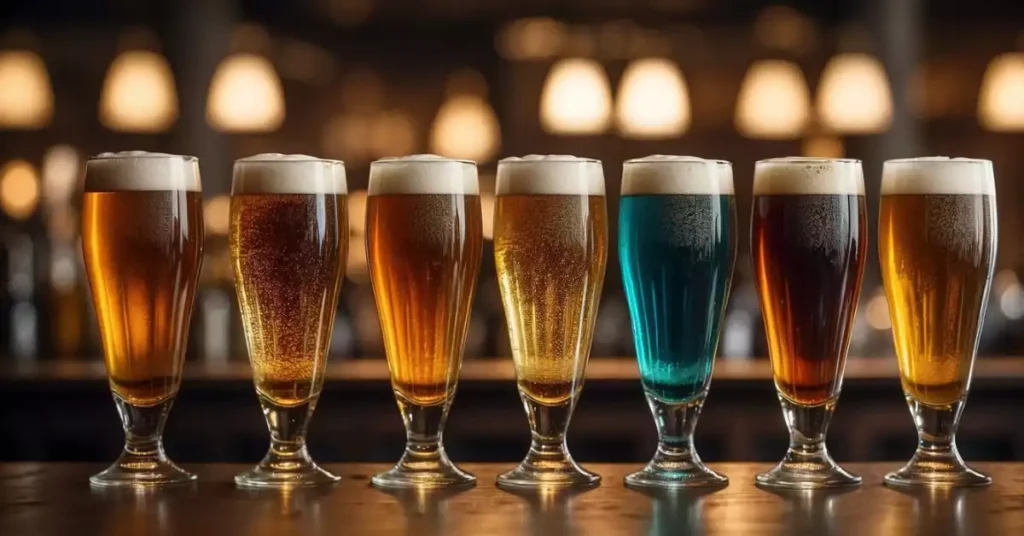
When you sip a Bavarian beer, you’re tasting centuries of brewing tradition influenced by the region’s pristine natural elements and historic purity laws.
Understanding Malt, Hops, and Yeast Influences
The flavors in Bavarian beer are a delicate dance of malt, hops, and yeast. Malt contributes sweetness with notes of caramel, bread, and biscuit, while hops add bitterness to balance and sometimes a hint of floral or citrus aromas. Yeast, particularly in wheat beers, imparts flavors ranging from banana to spices.
- Malt: Sweetness and full-bodied tastes
- Hops: Bitterness and aroma
- Yeast: Banana, spices, and unique fermentation flavors
Yeast is typically what differentiates lagers and ales; Bavarian lagers use a specific type called “Saccharomyces pastorianus,” which ferments at cooler temperatures and gives a crisp finish.
The Spectrum from Tart to Sweetness

Bavarian beer flavors extend from tart and refreshing to deep and sweet. Weissbier, or wheat beer, often presents a tart apple or banana flavor and a cloudy appearance due to being unfiltered. On the other end, beers like Doppelbock offer a sweetness from heavy malt use, providing a strong flavor profile.
Table: Flavors of Common Bavarian Beers
| Beer Style | Main Flavors | Note |
|---|---|---|
| Weissbier | Banana, Clove, Tart Apple | Unfiltered and cloudy |
| Helles Lager | Malt Sweetness, Bread | Clean and crisp |
| Dunkel | Caramel, Toasted Bread | Sweeter malt profile |
| Doppelbock | Dark Fruit, Caramel | Very sweet and full-flavored |
The water used in Bavarian brewing, adhering to the purity law, ensures that the essential flavors from the malt, hops, and yeast are prominent without the interference from additives, creating a purity in flavor that is cherished in Bavarian beers.
Food Pairing with Bavarian Beers
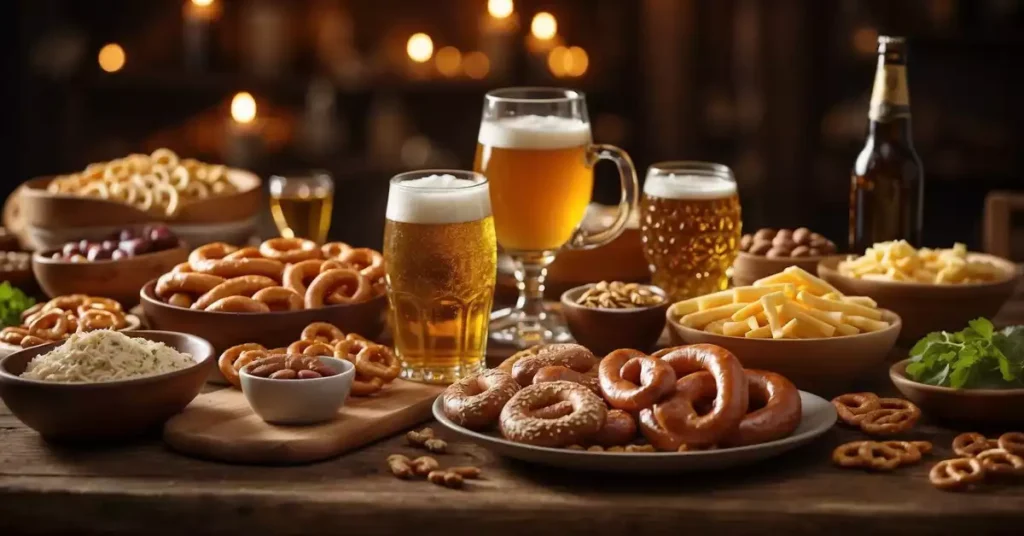
Indulging in Bavarian Beers opens up a world of flavors that are best enjoyed with traditional German dishes. Let’s explore how you can pair these rich beers with the right food to enhance your tasting experience.
Classic Combinations
When you sip on a Bavarian wheat beer, you’re tasting more than just hops and barley. This type of beer is known for its versatility and pairs well with a variety of dishes. Its creamy and slightly sweet flavors match impeccably with weisswurst, a traditional Bavarian sausage. Often, it’s the zest of the mustard and the tang of a pickle alongside the sausage that brings out the subtle notes in the beer.
Here’s a quick guide to help you pair Bavarian beers with classic German foods:
| Beer Style | Food Pairing | Why It Works |
|---|---|---|
| Weissbier | Pretzels & Obatzda | The beer’s banana and clove flavors complement the richness of the cheese spread. |
| Helles | Schnitzel | A light, malty lager cleanses the palate after the crispiness of the schnitzel. |
| Dunkel | Roast Pork | Dark beer with caramel notes emphasizes the savory taste of the pork. |
| Märzen (Oktoberfest) | Sausage & Sauerkraut | The maltiness harmonizes with the heartiness and tang of the dish. |
Bavarian soft pretzels, served with a generous helping of sweet mustard, are another crowd-pleaser with nearly any Bavarian beer but go especially well with a Schwarzbier or a Märzen.
Beer and Sausage: A Timeless Pair

Sausage and beer are a pairing that has stood the test of time in Bavaria. The variety of flavors in sausage link up perfectly with the numerous styles of wheat beer. A lighter weissbier or Helles can underline the delicate flavors of a white sausage such as weisswurst, while a darker Dunkel can stand up to the richer, more intense flavors of a bratwurst or knackwurst.
Remember, when you’re choosing your Bavarian beer and sausage pairings, think about balance. You want the beer to complement the dish without overpowering it, and vice versa. Enjoy your flavorsome journey through this delightful culinary tradition!
Bavarian Beer in the Global Market
You’ve probably heard of Bavarian beer, even if you haven’t had the chance to taste it yet. This beer variety from Germany’s Bavaria region stands out in the global market with its rich history and unique brewing techniques. Internationally, German beer is appreciated for its quality and tradition, and Bavarian offerings are no exception.
Bavarian beer’s success internationally can be linked to both its world-renowned heritage and the modern appeal of craft beer. Many German brands have leveraged Bavaria’s reputation to establish themselves across continents.
Most Popular Bavarian Beer Brands Globally:
| Brand | Type | Global Presence |
|---|---|---|
| Weihenstephaner | Weissbier | Extensively Distributed |
| Augustiner Bräu | Lager | Selected Markets |
| Spaten-Franziskaner | Pils | Broadly Available |
The population’s growing interest in diverse beer profiles has been a boon for Bavarian beer as well. Craft beer enthusiasts around the world often seek out genuine Bavarian brews, such as the Pils—a beer known for its light color and earthy, hop-forward flavor. These beers not only represent the pinnacle of traditional brewing but also cater to the modern palate that craves depth and complexity.
As you explore Bavarian beer offerings, you’ll notice that each brand brings its own character to the table, connecting you to the region’s storied past and its vibrant brewing culture. When you raise a glass of Bavarian beer, you’re not just enjoying a drink, you’re partaking in a legacy that has been meticulously crafted over centuries and celebrated around the globe.
Visiting Bavarian Breweries
When you explore Bavaria, you’ll find a rich tradition of brewing, where beer is more than just a beverage—it’s a cultural experience. A visit to the local breweries lets you savour this tradition firsthand.
Tours and Tastings
Embark on a Brewery Tour: Many Bavarian breweries open their doors to you for an immersive experience. You can learn about traditional brewing methods and enjoy sampling various beer styles. Options range from small family-owned establishments to world-renowned breweries like Weihenstephaner, which claims to be the world’s oldest. Visit the Bavarian Breweries Guide to find more details on tours.
Taste the Flavorful Beers: Tastings often showcase a wide array of beers, such as the refreshing Pils, the full-bodied Helles, and the rich Dunkles. At breweries like Abbey Breweries in Bavaria, these tastings might take place in a traditional Biergarten or cozy restaurant.
Brewery Tastings Menu
| Beer Style | Description |
|---|---|
| Pils | Hop aromas with a clear, golden color |
| Helles | Full-bodied light beer with pleasant bitterness |
| Dunkles | Dark, malty beer with a robust flavor |
Famous Beer Festivals

Experience Oktoberfest: Oktoberfest is undoubtedly the world’s most famous beer festival. With a special brew, Oktoberfestbier, crafted just for the occasion, it’s an event every beer enthusiast should experience at least once. Visit Bavaria’s Festivals to plan your visit around Oktoberfest.
Other Beer Festivals: Oktoberfest isn’t the only beer festival in Bavaria—throughout the year, various towns host festivals celebrating local brews. These gatherings are great chances for tourists to mingle with locals and enjoy an authentic Bavarian experience.
Our Opinion of Bavarian Beer
As you can see, Bavarian beer is a real cultural asset. A delicious cultural asset, to be honest. Whether in a beautiful Munich beer garden or as part of a hearty menu. A nice Bavarian beer is also a must when visiting the Munich Oktoberfest. Enjoy this tasty ingredient whenever you want.
FAQ about Bavarian Beer
What is the best type of Bavarian beer?
The best type of Bavarian beer is subjective and depends on personal taste. However, popular choices include Weißbier (wheat beer), Helles (pale lager), and Dunkles (dark lager).
What makes Bavarian beer unique?
Bavarian beer is unique due to the Reinheitsgebot (Beer Purity Law), which stipulates that only water, hops, and barley can be used in brewing.
What are the most famous Bavarian beer festivals?
The most famous Bavarian beer festivals are Oktoberfest in Munich, Erlangen Bergkirchweih, and the Gäubodenvolksfest in Straubing. These festivals attract millions of visitors from around the world to celebrate Bavarian beer culture.
Do you have a favorite Brand of a fine Bavarian Beer? Let us know in the comments below.

